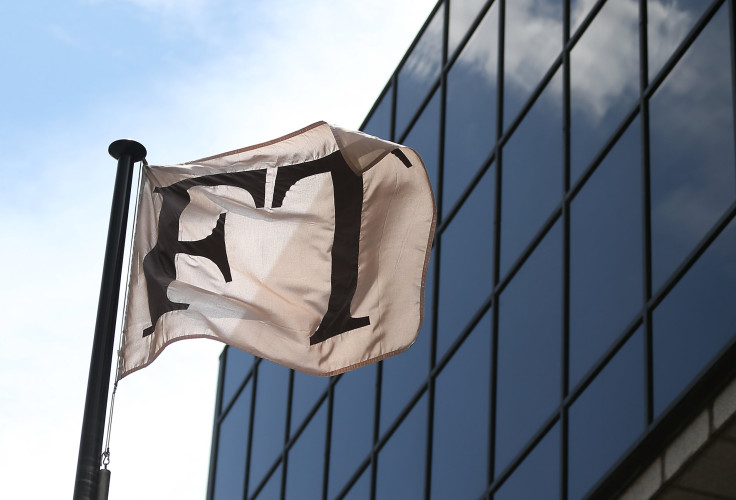What Exactly Is Nikkei, The Japanese Media Giant That Just Bought Financial Times For $1.3 Billion?

The sale of the Financial Times Group on Thursday came as no surprise after Bloomberg reported earlier this week that the publishing and education empire Pearson PLC was in talks to sell off the division.
The buyer, on the other hand, might have caught a few people by surprise.
The $1.3 billion bid came from Nikkei Inc., a huge Japanese media corporation with an ambition to dominate the media market in Asia. The sale dispelled rumors that the FT would go to the Berlin-based media company Axel Springer SE.
"It was a last minute thing," media analyst Ken Doctor told International Business Times. "Springer thought they had it, and it’s a huge loss for Springer in terms of its own transformation, which was supposed to be turning it from a German powerhouse to a major global player."
"This would have been the centerpiece of that," Doctor added.
Nikkei appears to have had an edge, after FT began to collaborate with it in 2013, when editor Lionel Barber announced the two would start working closely to cover “a time of heightened interest in Japan.” Nowadays, Japan is interested in FT.
Just What Is Nikkei?
Established in 1876, Nikkei’s flagship publication could be described as the Wall Street Journal of Japan, boasting a sizeable circulation of around 3 million (The Wall Street Journal has 2.1 million) with 36 foreign bureaus from Moscow to Cairo to Washington, D.C. Last year, it opened two new headquarters in Bangkok and Singapore.
“Our goal is nothing short of making Nikkei the leading media voice in Asia,” writes president and CEO Naotoshi Okada on Nikkei’s website.
The flagship paper’s online edition, started up in 2010, has 400,000 paying subscribers. Nikkei’s holding company owns several other publications, including a weekly English-language magazine launched in 2013.
Why Buy FT?
Hugh Tallents, partner at the management consulting firm at CG42, told IBT that Thursday’s deal represents Nikkei’s coming of age on the world stage.
“They’ve been looking for a global flagship media property that can enable their expansion into Asia, and FT represents that for them,” he said. “So this a really good flag-plant in global business media, a statement of intent."
FT is valuable for reasons beyond prestige: at a time when many publishers are struggling to transition to digital, around 70 percent of FT's paying subcribers read the digital product.
"It is the news brand that has made the greatest digital transition of any in the world," Doctor said. "FT has more digital revenue than print revenue. And that is significant."
"It’s a very tough thing to do, and most companies are no more than 15 to 20 percent digital. So FT is over a hump," he said. "It’s gonna take Nikkei a long time to pay back their investment here but they can learn from FT and its analytic approach toward the business."
In particular, Nikkei may be interested in FT's data science unit, which collects information on readers and subscribers. It’s the center of how the pink paper runs its business, follows its audience and better targets advertisements, both on the web and on mobile devices.
All that said, it’s still a minor profit producer, with a profit margin of to 7 percent to 8 percent. Doctor notes that the $1.3 billion purchase values FT at a multiple of 40 times annual profits. "That multiple very close to what Murdoch paid for Dow Jones in 2007, which he later had to write down by half."
What's Next For Nikkei?
Doctor expects the deal to change the way Nikkei does business rather than how it handles itself editorially. "I don't think that’ll change because of this purchase, nor do I think Nikkei will change the FT," he said.
In recent years, the Japanese media has stepped back from criticizing the government, which has taken an increasingly threatening stance toward the press. Nikkei’s reporting is considered journalistically solid, but there have been reports that is has stayed away from certain stories.
A piece from none other than the Financial Times in 2011 argued that “Japan’s timid media” is aching for an upgrade.
“The business press, in particular, depends on a flow of smaller scoops -- reporting a deal the day before the official announcement, say -- that might dry up if journalists expose uglier secrets,” Nikkei’s new property wrote at the time.
Left out of Thursday’s deal was Pearson’s 50 percent interest in The Economist Group, home of the eponymous magazine. Tallents suspects this was a significant decision by Pearson to hold onto the Economist’s more pointed, opinionated coverage, which gels with Pearson’s educational properties, while letting go of the more objective voice of FT.
Perhaps the biggest question now is whether this is the first of many buys for Nikkei. They’re looking to bolster their portfolio around the world, and the FT could be just an appetizer.
“These acquisitions can become addictive,” Tallents said.
© Copyright IBTimes 2024. All rights reserved.






















